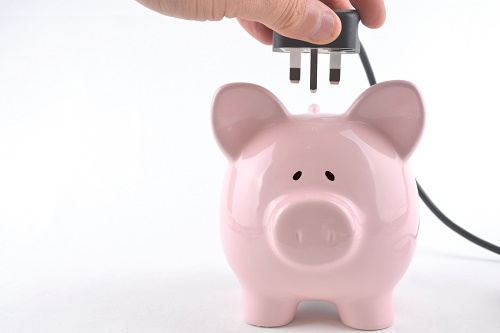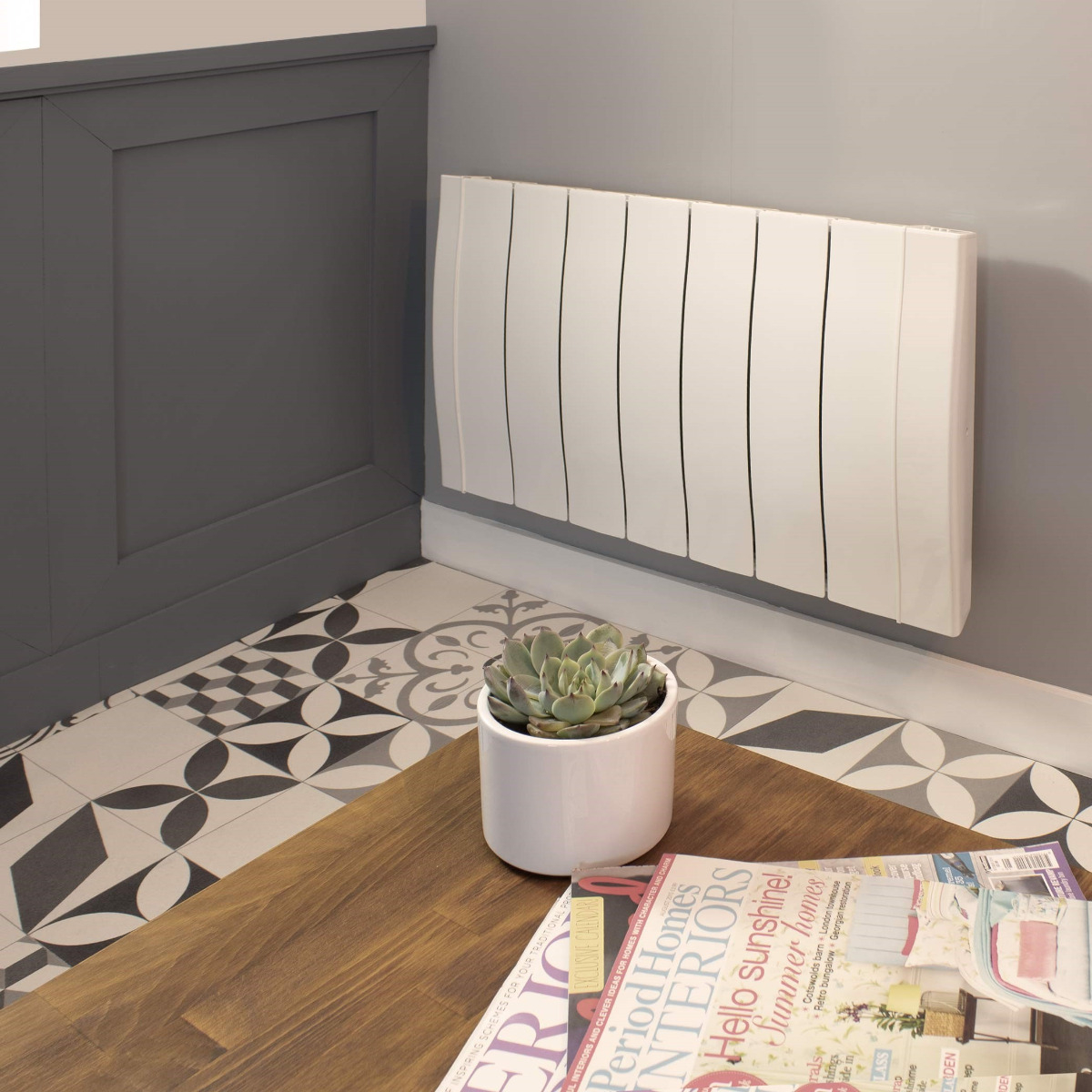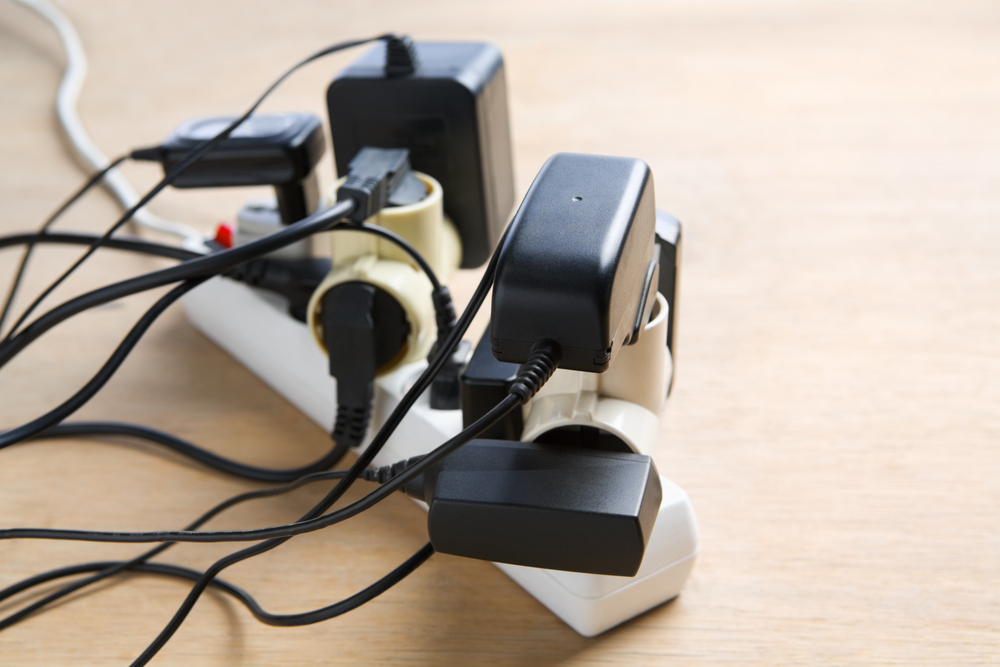
 Here in the UK, the average electricity bill in 2015 was a sizeable £584 per household (1). Understanding which of our appliances are responsible for using this electricity is the first step towards getting control of our energy bills, and lowering these costs. Here we explore which of our appliances are the worst offenders when it comes to energy consumption, and how common appliances actually cost to run.
Here in the UK, the average electricity bill in 2015 was a sizeable £584 per household (1). Understanding which of our appliances are responsible for using this electricity is the first step towards getting control of our energy bills, and lowering these costs. Here we explore which of our appliances are the worst offenders when it comes to energy consumption, and how common appliances actually cost to run.
How to work out running costs
Working out how much an appliance costs to run is a simple sum to do. Every electrical appliance in our home should come with a power rating, expressed in terms of kilowatts (kW). To estimate how much an appliance will cost to run, we simply multiply the power rating (in kW) by the number of hours we plan to use it, and then multiply this by the electricity rate
So, the sum is (in pounds):
Power (kW) x Time (hours) x Rate (£)
To give a ‘real world’ example, if you had a 2kW water heater and wanted to leave it switched on overnight (8 hours), and were on a tariff of 12p per kWh, the sum would be:
2 x 8 x 0.12 = £1.92
It’s important to remember that we work in kW, so if your appliance is only 700w then you will need to use 0.7 for the sum. We also only work in whole hours, so if you only plan to use your appliance for 15 minutes, you would need to insert 0.25 in the sum.
One thing to remember, however, is that high energy ratings do not necessarily mean higher bills. Some appliances use more energy because they work more efficiently, and that means they will be switched on for a shorter period of time. The best way to choose energy efficient appliances is to check the energy label, and pick only appliances that are A rated or better.
Heating and hot water appliances
 Home heating always makes up a large percentage of your monthly bills, whether you use oil, gas or electricity. To a certain extent this is unavoidable. Raising and maintaining temperatures in any space requires energy – and the larger the space and the higher the temperature you want to maintain, the more energy you will require. However, you can reduce the amount of energy you use for your heating by choosing energy efficient heating systems – heating systems which convert as much of their power as possible into useful heat, with no wasted energy converted into sound energy, light energy, or heat which is lost before it reaches your rooms.
Home heating always makes up a large percentage of your monthly bills, whether you use oil, gas or electricity. To a certain extent this is unavoidable. Raising and maintaining temperatures in any space requires energy – and the larger the space and the higher the temperature you want to maintain, the more energy you will require. However, you can reduce the amount of energy you use for your heating by choosing energy efficient heating systems – heating systems which convert as much of their power as possible into useful heat, with no wasted energy converted into sound energy, light energy, or heat which is lost before it reaches your rooms.
If you use electricity for your home heating you will find a huge range of heat-providing options, some designed for efficiency, others designed for economy, speed of heating, portability or cheapness. Naturally the ideal electric heating system to use for your primary heating system will be one which combines efficiency with economy; however, the most economical choice for your home will depend largely on your lifestyle.
There are two main options for primary home heating if your house uses electricity: storage heaters and electric radiators. Storage heaters are not inherently efficient; they heat up overnight and emit heat with limited control throughout the day. This requires a larger amount of power. Electric radiators, meanwhile, heat up only as and when you need them, and they can make use of precision electronic controls to reduce your energy usage to the minimum required. The disparity in efficiency can be seen by the typical wattages of comparable heaters used to heat the same room: depending on the quality of insulation and location of your property, a room with a 15m2 floor space can be heated with an electric radiator using 1200-1750 watts. To heat the same room with storage heaters, you will need 2550-5100 watts. Storage heaters are only economical when used with a cheaper night electric tariff that offers lower rates on electricity used between midnight and 7am. However, unless you need a high level of heat throughout the day, you can probably save energy and money by cutting your heating down to what you really need with electric radiators.

Hot water tank heaters are also rated for power, with most falling between 2kW and 4kW. In some homes these will just be ‘boosters’, to heat up the top portion of the hot water tank if the boiler has been switched off and more hot water is needed. In other homes, they are the primary source of water heating.
Check how often you switch yours on, and avoid using it whenever possible. Consider fitting a timer to avoid accidentally leaving it switched on, and definitely invest in some good tank insulation to avoid heat being lost through the walls of the tank.
Cooling appliances
Second only to heating in the electricity guzzling stakes are the appliances that do the opposite of heating our homes. We don’t use much air conditioning in the UK, but if you do, you might want to check the power rating of that A/C unit and do the maths to work out just how much it’s costing you!
What we do all have, however, are fridges and freezers. How much they cost to run can vary considerably depending on the age of the appliance, its energy rating (AAA is best) and how much you’re paying for your energy. As a rough guide, however, the running costs of cooling appliances are:
|
Appliance |
Average consumption (kWh/year) |
Cost at 12p/kWh |
|
Standalone fridge |
162 |
£19.44 |
|
Combined fridge-freezer |
427 |
£51.24 |
|
Standalone freezer |
327 |
£39.24 |
|
Chest freezer |
362 |
£43.44 |
Fridges and freezers work their best when they are around two thirds full, so it’s worth keeping this in mind if you want to reduce running costs. Check the gasket seal around the door of the appliance, as little leaks could cost you big in the long run.
Entertainment and lighting
Here are some examples of entertainment appliances and lighting choices, to give you some idea of how much they cost (based on a tariff of 12p per kWh).
|
Appliance |
Average consumption (kWh/year) |
Cost at 12p/kWh |
|
32” LED TV |
50W x 3 hours per day = 55 |
£6.57 |
|
Phone charger |
6W x 5 hours per day = 11 |
£1.31 |
|
TV box (Sky, Cable) |
40W x 24 hours per day = 350 |
£42.05 |
|
Broadband router |
10W x 24 hours per day = 88 |
£10.51 |
|
Laptop (charge) |
30W x 4 hours per day = 44 |
£5.26 |
|
Desktop computer |
100W x 4 hours per day = 146 |
£17.52 |
|
Games console |
80W x 3 hours per day = 88 |
£10.51 |
|
Halogen lightbulb |
40W x 3 hours per day = 44 |
£5.26 |
|
CFL bulb (fluorescent) |
11W x 3 hours per day = 12 |
£1.45 |
|
LED light bulb |
5W x 3 hours per day = 5 |
£0.66 |
As you can see, there are some good choices to be made when it comes to how you use and choose your appliances. Lighting in particular can quickly pay for itself when you decide to upgrade to more efficient LED lighting. Other things can offer big savings when they are switched off; for example, did you see how much your Sky box could be costing you to run? Why not switch it off overnight and save yourself a packet!
Hidden energy vampires
 Did you know that, according to research by the Energy Saving Trust, UK households could be wasting up to 16 per cent of their energy bills on absolutely nothing? How so, you ask? Well, on average households are spending between £50 and £86 per year to leave popular appliances on standby (2).
Did you know that, according to research by the Energy Saving Trust, UK households could be wasting up to 16 per cent of their energy bills on absolutely nothing? How so, you ask? Well, on average households are spending between £50 and £86 per year to leave popular appliances on standby (2).
So, if you are serious about saving money in your home, switch to energy efficient appliances, learn to use and maintain them for efficiency, and never leave things on standby if you are able to switch them off. If you have an electric heating system that's getting past its prime, it's also highly advisable to invest in new heaters like our range of modern electric radiators. These sophisticated products come with automatic energy-efficiency measures to ensure they use as little electricity as possible without you having to periodically adjust them - a must if you want optimal running costs.
Sources
(1) https://www.gov.uk/government/uploads/system/uploads/attachment_data/file/487871/Press_Notice_December_2015.pdf
(2) http://www.theguardian.com/environment/2012/jun/26/appliances-standby-cost-households-energy






